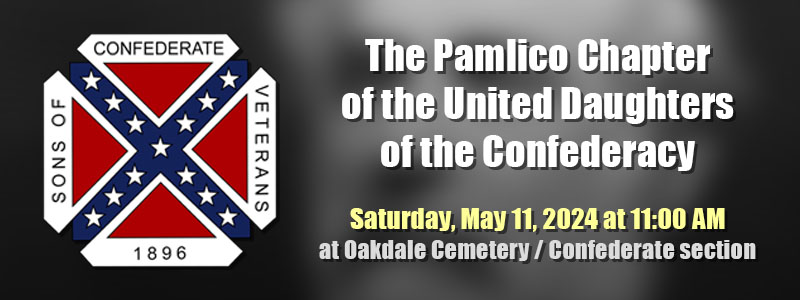Committed to the First Amendment and OUR Freedom of Speech since 2008
State ABC Commission Rewards Local Boards for Their 'Hard Work'
Publisher's note: This post appears here courtesy of the Carolina Journal.
Members who serve on the 168 boards that control local alcohol sales in North Carolina are doing good work.
Know how we know?
Because state Alcoholic Beverage Control Commission officials, including one who's no longer with the agency, say so.
The ABC is giving these boards a bonus of sorts. For all their "hard work."
Former ABC administrator Bob Hamilton left the agency in late July, about two weeks before the state auditor released a report saying the N.C. Alcoholic Beverage Control Commission has over past years cost the state about $13.5 million.
Hamilton, ABC meeting minutes say, reported that ABC staff recommended reducing the bailment surcharge - $1.40 per case - to $1.15 per case. (Bailment charges and fees are imposed on each case of liquor shipped from an ABC warehouse).
The formula for pricing a bottle of liquor in North Carolina is, well, complicated. The cost to the consumer is the result of myriad fees and taxes, including the bailment fee and local markup, as well as state and federal excise taxes, state sales taxes, and bottle charges.
Guess who ends up paying more?
A bottle of, say, Jim Beam white label bourbon will cost you $16.95 for a 750-milliliter bottle at any ABC store in this state. In Virginia, also a control state, that bottle will cost $14.99, according to the Virginia ABC website. In South Carolina - not a control state - that same bottle, a quick web search tells me, is fewer than $12 at some stores and fewer than $11 at others.
On to the "bonus."
The local markup for a bottle of liquor in North Carolina has stood at 39.5 percent. To help make up for the bailment reduction, ABC decided to increase the markup to 39.6 percent.
The increase in the markup for local boards would cover operating expenses, the ABC says.
As Hamilton explained, according to the minutes, "this increase would allow the boards to return more funds to their local communities without the need for suppliers to increase their pricing. ... Hamilton added the consumers would not experience an increase to their cost for liquor as a result of the increase in the markup percentage [when paired with the lower surcharge]."
ABC Chairman A.D. "Zander" Guy doubled down, saying "this is a way for the Commission to show its appreciation for the work of the ABC Boards."
He also mentioned the boards' "hard work," the minutes say.
Board members are paid from money generated by local alcohol sales. Each local ABC board, the commission says, may set its own compensation, as long as it doesn't exceed $150 per board meeting, according to state statute.
Joe Wall of the N.C. Association of ABC Boards was quite pleased with the change.
But what about the consumers, many of whom, in my mind, are getting played by a monopolistic system run by people and special interests intent on locking it down for the foreseeable future? How else can one explain the commission's sudden generosity with money to localities funneled through a group of people appointed by local politicians, who, then, are paid for their "hard work?" Looking at the ABC system as a whole, these are people who hold unfettered power to control what should be a free and open market. People who control markups, surcharges and fees. Who control prices, which aren't dropping despite record profits.
Rep. Chuck McGrady, R-Henderson, has a fundamental problem with the markup change.
"One has to wonder if the ABC board markup functions like a tax, and if so, should it be set by the legislature?" McGrady asks.
In May, the state's Program Evaluation Division released a follow-up report to "North Carolina's Alcohol Beverage Control System Is Outdated and Needs Modernization." That initial report was released in 2008.
"Since performance standards were initiated in 2011," the latest report says, "local ABC board compliance with the standards has increased the overall profit percentage for the ABC system from 8.5 percent to 11.2 percent, the percentage of boards with profit margins of 5 percent or more from 44 percent to 72 percent, and the percentage of local ABC boards with operating margins that match or exceed private liquor retailers from 31 percent to 62 percent."
In fiscal 2006-07, the PED report says, total revenue for liquor sales in North Carolina was almost $692 million. For fiscal 2016-17, total revenue was more than $1.1 billion, about $74.5 million of which went to county and city governments.
Overall, the report says, the profit percentage for the ABC system increased from 8.54 percent for fiscal 2010-11 to 11.19 percent for fiscal 2016-17. The percentage of boards with profit margins of 10 percent or more increased from 10.1 percent to 19.6 percent. Since performance standards were implemented in 2011, 62 percent of local ABC boards have operating margins that match or exceed private liquor stores in South Carolina and Florida, the PED study says.
Beyond the idea of buying loyalty, the ABC, regardless of profit margins, are unwilling to lower prices, save the across-the-board monthly specials. The ABC, of course, has no competition, so why would it?
Go Back
Members who serve on the 168 boards that control local alcohol sales in North Carolina are doing good work.
Know how we know?
Because state Alcoholic Beverage Control Commission officials, including one who's no longer with the agency, say so.
The ABC is giving these boards a bonus of sorts. For all their "hard work."
Former ABC administrator Bob Hamilton left the agency in late July, about two weeks before the state auditor released a report saying the N.C. Alcoholic Beverage Control Commission has over past years cost the state about $13.5 million.
Hamilton, ABC meeting minutes say, reported that ABC staff recommended reducing the bailment surcharge - $1.40 per case - to $1.15 per case. (Bailment charges and fees are imposed on each case of liquor shipped from an ABC warehouse).
The formula for pricing a bottle of liquor in North Carolina is, well, complicated. The cost to the consumer is the result of myriad fees and taxes, including the bailment fee and local markup, as well as state and federal excise taxes, state sales taxes, and bottle charges.
Guess who ends up paying more?
A bottle of, say, Jim Beam white label bourbon will cost you $16.95 for a 750-milliliter bottle at any ABC store in this state. In Virginia, also a control state, that bottle will cost $14.99, according to the Virginia ABC website. In South Carolina - not a control state - that same bottle, a quick web search tells me, is fewer than $12 at some stores and fewer than $11 at others.
On to the "bonus."
The local markup for a bottle of liquor in North Carolina has stood at 39.5 percent. To help make up for the bailment reduction, ABC decided to increase the markup to 39.6 percent.
The increase in the markup for local boards would cover operating expenses, the ABC says.
As Hamilton explained, according to the minutes, "this increase would allow the boards to return more funds to their local communities without the need for suppliers to increase their pricing. ... Hamilton added the consumers would not experience an increase to their cost for liquor as a result of the increase in the markup percentage [when paired with the lower surcharge]."
ABC Chairman A.D. "Zander" Guy doubled down, saying "this is a way for the Commission to show its appreciation for the work of the ABC Boards."
He also mentioned the boards' "hard work," the minutes say.
Board members are paid from money generated by local alcohol sales. Each local ABC board, the commission says, may set its own compensation, as long as it doesn't exceed $150 per board meeting, according to state statute.
Joe Wall of the N.C. Association of ABC Boards was quite pleased with the change.
But what about the consumers, many of whom, in my mind, are getting played by a monopolistic system run by people and special interests intent on locking it down for the foreseeable future? How else can one explain the commission's sudden generosity with money to localities funneled through a group of people appointed by local politicians, who, then, are paid for their "hard work?" Looking at the ABC system as a whole, these are people who hold unfettered power to control what should be a free and open market. People who control markups, surcharges and fees. Who control prices, which aren't dropping despite record profits.
Rep. Chuck McGrady, R-Henderson, has a fundamental problem with the markup change.
"One has to wonder if the ABC board markup functions like a tax, and if so, should it be set by the legislature?" McGrady asks.
In May, the state's Program Evaluation Division released a follow-up report to "North Carolina's Alcohol Beverage Control System Is Outdated and Needs Modernization." That initial report was released in 2008.
"Since performance standards were initiated in 2011," the latest report says, "local ABC board compliance with the standards has increased the overall profit percentage for the ABC system from 8.5 percent to 11.2 percent, the percentage of boards with profit margins of 5 percent or more from 44 percent to 72 percent, and the percentage of local ABC boards with operating margins that match or exceed private liquor retailers from 31 percent to 62 percent."
In fiscal 2006-07, the PED report says, total revenue for liquor sales in North Carolina was almost $692 million. For fiscal 2016-17, total revenue was more than $1.1 billion, about $74.5 million of which went to county and city governments.
Overall, the report says, the profit percentage for the ABC system increased from 8.54 percent for fiscal 2010-11 to 11.19 percent for fiscal 2016-17. The percentage of boards with profit margins of 10 percent or more increased from 10.1 percent to 19.6 percent. Since performance standards were implemented in 2011, 62 percent of local ABC boards have operating margins that match or exceed private liquor stores in South Carolina and Florida, the PED study says.
Beyond the idea of buying loyalty, the ABC, regardless of profit margins, are unwilling to lower prices, save the across-the-board monthly specials. The ABC, of course, has no competition, so why would it?
| BREAKING: Trump Fires Attorney General Sessions, Sessions Releases Resignation Letter | Carolina Journal, Editorials, Op-Ed & Politics | Restorative Justice Focuses on Healing, Not Punishment |
Latest Op-Ed & Politics
|
how many of these will come to North Carolina?
Published: Tuesday, April 23rd, 2024 @ 1:32 pm
By: John Steed
|
|
Barr had previously said he would jump off a bridge before supporting Trump
Published: Tuesday, April 23rd, 2024 @ 11:37 am
By: John Steed
|
|
Babis is leader of opposition in Czech parliament
Published: Tuesday, April 23rd, 2024 @ 10:28 am
By: John Steed
|
|
illegal alien "asylum seeker" migrants are a crime wave on both sides of the Atlantic
Published: Tuesday, April 23rd, 2024 @ 9:44 am
By: John Steed
|
|
only one holdout against acquital
Published: Tuesday, April 23rd, 2024 @ 9:01 am
By: John Steed
|
|
DEI now includes criminals?
Published: Monday, April 22nd, 2024 @ 8:33 pm
By: John Steed
|
|
Biden regime intends to force public school compliance as well as colleges
Published: Monday, April 22nd, 2024 @ 1:55 pm
By: John Steed
|
|
clamps down on oil drilling in Alaska
Published: Monday, April 22nd, 2024 @ 9:09 am
By: John Steed
|






















